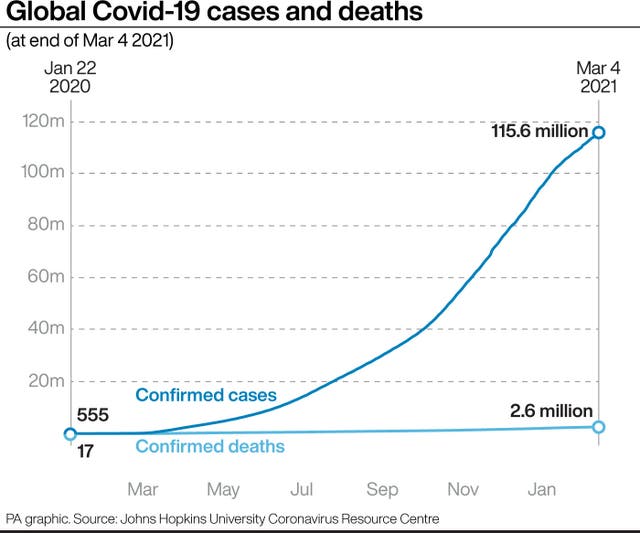France has backed Italy’s block on exports of coronavirus vaccines outside the European Union if necessary to enforce the bloc’s contracts with drugs manufacturers.
The EU defended Italian authorities’ decision to stop a large shipment of doses destined for Australia as part of a longstanding feud with drug manufacturer AstraZeneca.
The European Commission said the decision was not targeting Australia but had been taken to ensure AstraZeneca delivers the number of doses it committed to dispatch to EU countries.
“The fact is that the European Union is a major exporter of vaccine doses,” commission chief spokesman Eric Mamer said.

Faced with a shortage of doses during the early stages of the vaccine campaign that started in late December, the EU announced the export control system for jabs in late January, in a bid to force companies to respect their contractual obligations to the bloc first.
Since the mechanism entered into force on January 30, the commission said 174 authorisations of vaccine exports to 30 countries outside the EU have been approved.
But the EU has been particularly upset by AstraZeneca because the company is delivering far fewer doses to the bloc than it promised. Of the initial order for 80 million doses first quarter this year, the company will be struggling to deliver half that quantity.
“We believe that this vaccine is an important element of our portfolio and we therefore are expecting the delivery of the agreed doses,” Mr Mamer said.
“We are working with the companies in order to ensure that they deliver the doses that are foreseen for the European Union. For all those companies that are doing that, there are no problem with exports.”

As supplies remain scarce in the 27-nation region amid delays in deliveries and production issues, European countries have shown signs of division recently, with several countries expressing frustration over the slow rollout of doses and looking for extra supplies outside the joint procurement set up by the EU,
But Italy’s decision to block the shipment of more than 250,000 AstraZeneca doses destined for Australia prompted member states to close ranks.
French health minister Olivier Veran said he “understood” the Italian’s government decision and indicated France “could do the same”.
“Believe me, the more doses I have, the happier I am as health minister,” he said, adding that France and its European partners are determined to have contracts with drugmakers enforced.
“In general, vaccine exports aren’t stopped as long as the contracts with the EU are abided by,” German government spokesman Steffen Seibert said. “A lot of vaccines go from the EU to third countries, while nothing or almost nothing is exported from the United States and Great Britain.”
The EU thought it had made excellent preparations for the rollout of vaccines to its 450 million people. It has signed deals for six different vaccines, and ordered up to 400 million doses of the AstraZeneca vaccine and sealed agreements with other companies for more than two billion.
But only 33 million doses have been given so far, and only 11 million Europeans have been fully vaccinated.
Despite the difficulties, the EU’s goal remains to vaccinate 70% of the adult population in the bloc by the end of summer.
“The world is in uncharted territory at present, it’s unsurprising that some countries would tear up the rule book,” Australian finance minister Simon Birmingham told Sky News Australia on Friday.




Comments: Our rules
We want our comments to be a lively and valuable part of our community - a place where readers can debate and engage with the most important local issues. The ability to comment on our stories is a privilege, not a right, however, and that privilege may be withdrawn if it is abused or misused.
Please report any comments that break our rules.
Read the rules here